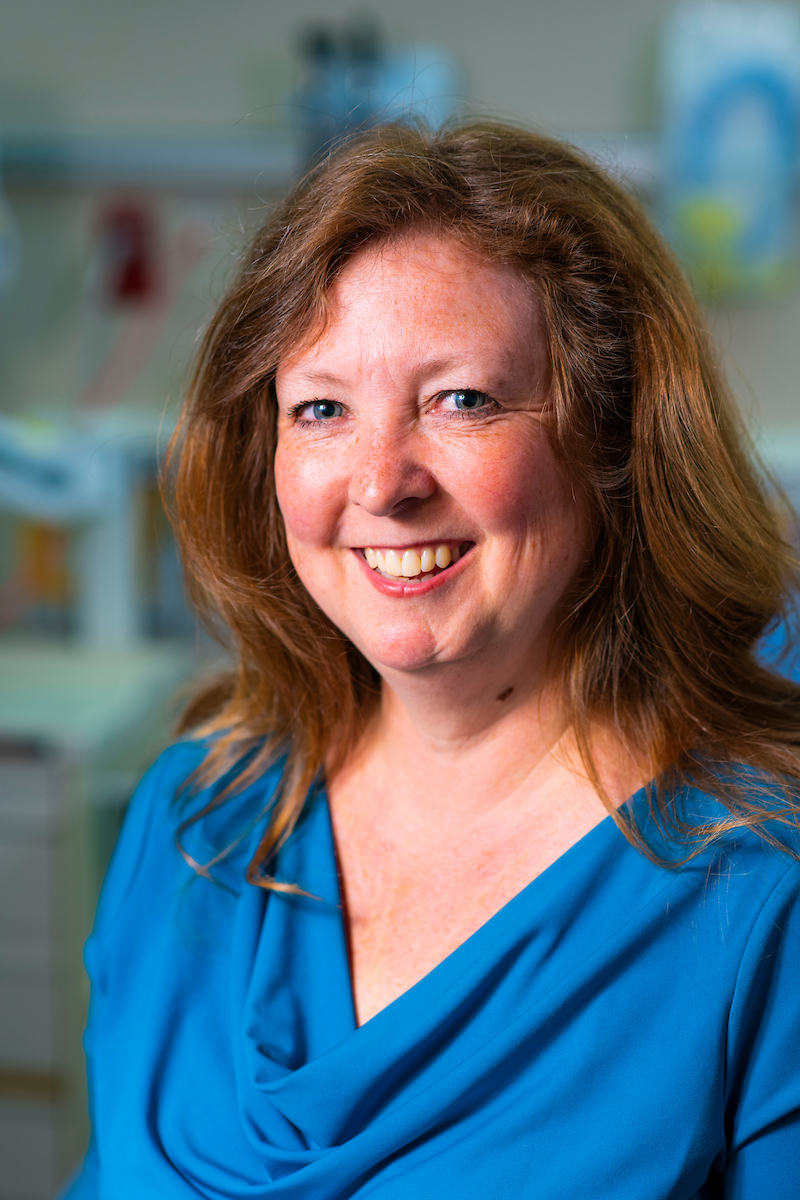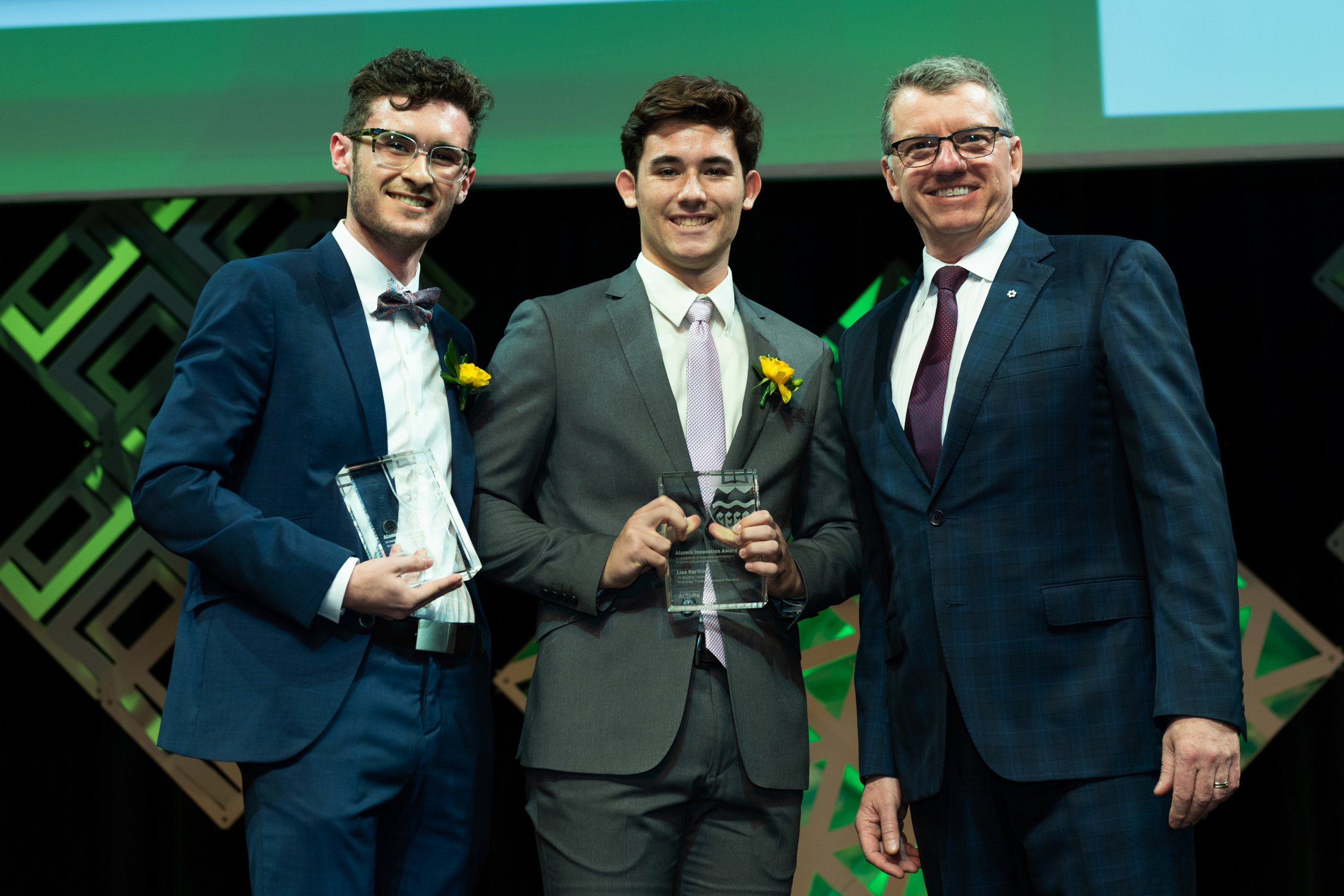Main Menu

Annually, the University of Alberta Alumni Awards recognizes the professional achievements, community service and innovation of graduates around the globe. We are extremely proud to have two distinguished researchers in the field of knowledge translation be among the recipients, and wanted to highlight some of their great work. We conneKTed with Dr. Shannon Scott from echo Research (Faculty of Nursing), and this week are delighted to bring you, Dr. Lisa Hartling.
Dr. Lisa Hartling is professor in the Department of Pediatrics at the University of Alberta. She is Lead of the platform formerly known as the Alberta SPOR SUPPORT Unit Knowledge Translation Platform, and holds several directorships including the following: Alberta Research Centre for Health Evidence (ARCHE); University of Alberta Evidence-based Practice Center and Evidence Review Synthesis Centre; Translating Emergency Knowledge for Kids; and Cochrane Child Health.
Dr. Hartling, tells us about her progression in the field of knowledge translation:
These principles are heavily embedded in the goals of the Alberta SPOR SUPPORT Unit Knowledge Translation Platform, which focuses on increasing the quantity, quality and uptake of patient-oriented research in Alberta. Dr. Hartling’s work aligns with this focus, particularly in the area of child health. She elaborates:
We asked Dr. Hartling her thoughts on the challenges with working in the field of KT:
Dr. Hartling was a member of the planning committee for the KT Alberta event Advancing Implementation Science in Alberta (AISA), which explored the feasibility of establishing an implementation science laboratory in Alberta. As a distinguished member of the KT Alberta Community of Practice, whose voice lends to the vision and future of the field in Alberta and nationally, Dr. Hartling’s contributions at AISA drew on her overall goals for KT:
To end both of these great interviews, I wanted to show our readers that, in addition to being two highly distinguished researchers and academics, both Drs. Scott and Hartling are mothers and draw on many personal experiences as parents to fuel their passion for the work that they do.

— The children of Drs. Scott and Hartling collecting the University of Alberta 2018 Alumni Innovator of the Year Award, on their behalf.
To find out more about Dr. Hartling’s work, you can visit the ARCHE website .
How were you introduced to KT? Share your KT story with us!
Until next time!
Let us know how you want to stay connected


 News + Events
News + Events

 Patient Partner Research Opportunities
Patient Partner Research Opportunities

 I agree to receive occasional emails from AbSPORU.
I agree to receive occasional emails from AbSPORU.University of Calgary Foothills Campus
3330 Hospital Dr NW
Calgary, AB T2N 4N1
University of Alberta North Campus
Edmonton Clinic Health Academy (ECHA)
11405 87 Ave NW
Edmonton, AB T6G 1C9
The Alberta SPOR SUPPORT Unit operates on and acknowledges the lands that are the traditional and ancestral territory of many peoples, presently subject to Treaties 6, 7, and 8. Namely: the Blackfoot Confederacy – Kainai, Piikani, and Siksika – the Cree, Dene, Saulteaux, Nakota Sioux, Stoney Nakoda, and the Tsuu T’ina Nation and the Métis People of Alberta. This includes the Métis Settlements and the Métis Nation of Alberta. We acknowledge the many First Nations, Métis and Inuit who have lived in and cared for these lands for generations. We make this acknowledgment as a reaffirmation of our shared commitment towards reconciliation, and as part of AbSPORU’s mandate towards fostering health system transformation.
© 2025 AbSPORU